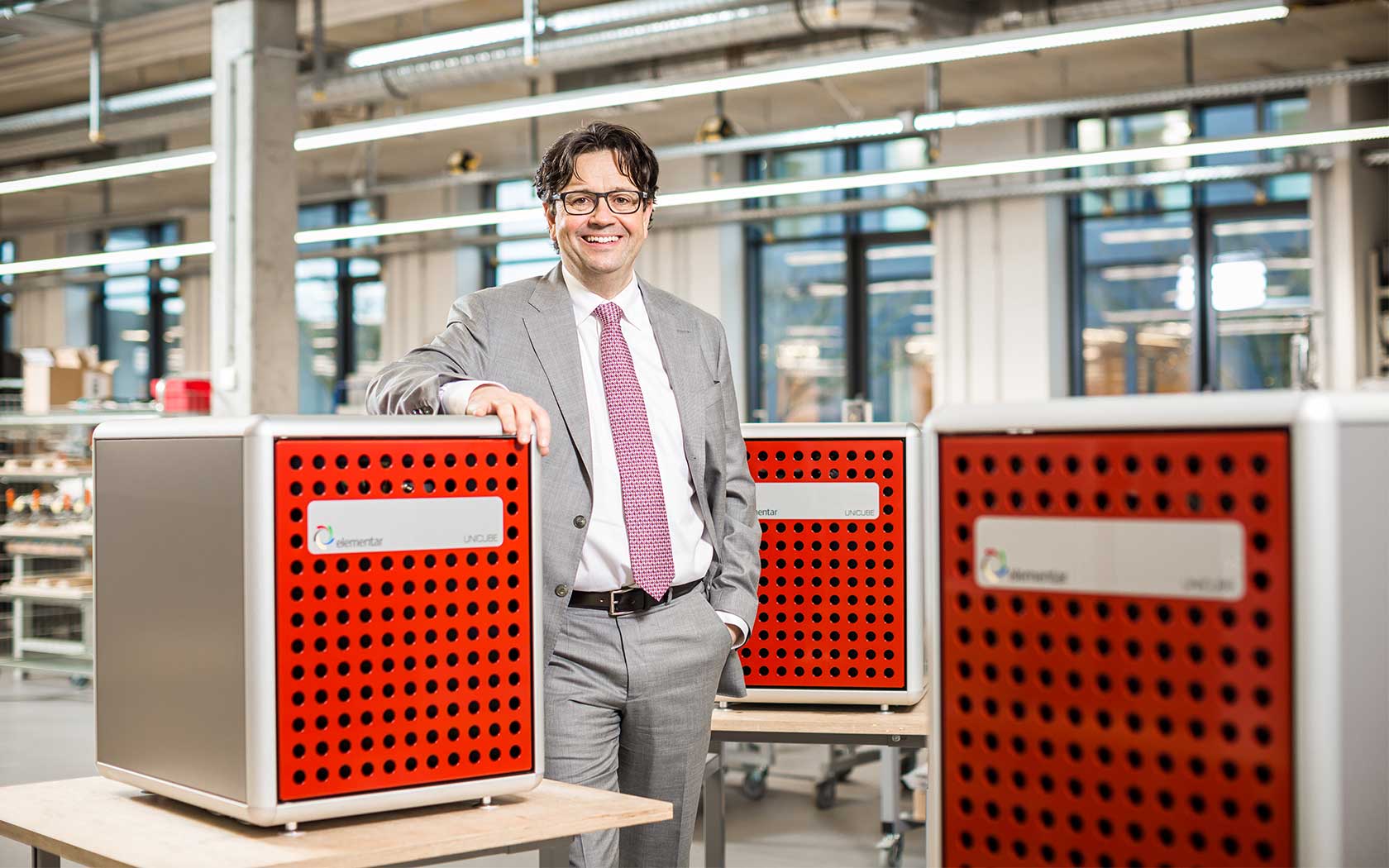How elemental analysis has influenced our lives - for 125 years
Data has the potential to change the world. What is less well known is that organic elemental analysis has been providing such data for 125 years. They have revolutionized organic chemistry and continue to help make the world more sustainable today.
For the founders of organic chemistry, elemental analysis contributed significantly to the understanding and targeted production of chemical compounds and thus laid the foundation for industrial production. What makes this method unique? As the oldest industrially developed analytical technique, organic elemental analysis very precisely determines the percentage content of the elements carbon, hydrogen, nitrogen, oxygen and sulfur. The results obtained from elemental analysis influence our daily lives - largely without our knowledge. One important area of application is the development and quality control of a wide variety of products, such as food and pharmaceuticals, as well as metals used in vehicles. In addition, elemental analysis can contribute to a clean environment by providing important bases for decisions on environmental protection measures. Find out more about elemental analyzers and their applications in the following examples.
For press requests please click here
Gamechanger in environmental protection

Elemental analyzers are used in the laboratories of industry, government agencies, universities and research institutes worldwide. The analytical results are used contribute to the preservation of our environment by providing important bases for decisions on environmental protection measures. Elemental analysis enables rapid testing of water, sediment and soil quality. Waste, on the other hand, can be classified into waste classes by analysis, sorted and directed to appropriate recycling. The environmental compatibility and compliance with environmental regulations of liquid and solid fuels can also be checked in this way. For research purposes, elemental analysis is often used in combination with stable isotope analysis - for example, in climate research or in the geosciences to find out more about the processes involved in the formation of the earth. However, these are by no means all the areas of application for elemental analysis.
Learn more about the use of elemental analyzers in the environmental area.
For more food quality

Elemental analysis also plays a decisive role in the food industry. This is because the protein content, an important factor for product quality and price, can be determined on the basis of the nitrogen content. It does not have to be shown on the label and/or packaging of the product, it is also an important parameter in the development of texture, consistency and taste of food. Want to learn more about analyzing dietary fiber or testing food authenticity? Read on to find out how food can be analyzed cost-effectively.
A pioneer - from the very beginning

Elementar Analysensysteme GmbH can be traced back to the Heraeus Group and has thus been one of the pioneers of elemental analysis from the very beginning. In 1990, Dr. Hans-Peter Sieper spun Elementar off from the Heraeus Group to form an independent company. Through innovative products and the development of new fields of application, Elementar has since successfully established itself as a leading global supplier in the field of instrumental elemental analysis. In 2017, Albrecht Sieper took over the management of the company from his father. He is thus continuing the tradition of the owner-managed family company. Find out more details about the history of Elementar.
Please contact us for press text and image requests
If you would like to receive our newsletter, by clicking on the “Submit” button you consent to receiving personalized newsletters by email from Elementar UK Ltd. and its group companies, as well as to the evaluation of my user behavior in this regard and – if available – the merging of this data with my data in our customer database.
In order to receive newsletters from our group companies, it is necessary to transmit the above-mentioned data to them. The data transfer to these recipients is legitimized by your consent, which you give by clicking on the “Submit” button.
The newsletter can be canceled at any time with effect for the future as well as my consent to the transfer to our group companies can be revoked at any time. A revocation does not affect the legality of the processing carried out on the basis of the consent until the revocation. For more information, please refer to our privacy policy.